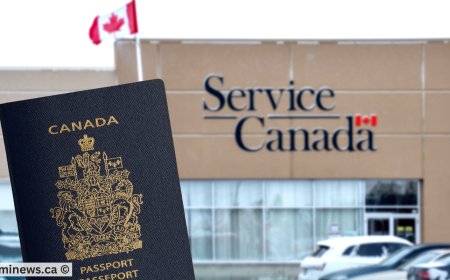Aircraft instrument, electrical and avionics mechanics, technicians and inspectors Canada Immigration Overview: Key Insights on Salaries, Employment, and Regional Advantages
Welcome to the pathway to Canada immigration for skilled professionals and trade workers. This guide is specifically tailored for Aircraft instrument, electrical and avionics mechanics, technicians and inspectors looking to work and settle in Canada, offering a deep dive into the essential aspects of immigration and employment in this field.
Introduction
In this article, we will be exploring the career and immigration prospects in Canada for Aircraft instrument, electrical and avionics mechanics, technicians and inspectors. These professionals play a crucial role in ensuring the safe operation of aircraft by inspecting, repairing and maintaining the intricate electrical and instrument systems. We will delve into the profile description, main job duties, education and licence requirements, skills needed, median age and retirements, salary details, as well as possible visa options for individuals interested in pursuing this career path in Canada.
What is the Profile Description of a Aircraft instrument, electrical and avionics mechanics, technicians and inspectors as per the Canadian National Occupation Classification (NOC) Standards?
Aircraft instrument, electrical, and avionics mechanics, technicians, and inspectors are professionals who are responsible for installing, adjusting, repairing, and overhauling aircraft instrument, electrical, and avionics systems. They also conduct inspections on these systems following assembly, modification, repair, or overhaul. These skilled individuals are employed by aircraft manufacturing, maintenance, repair, and overhaul companies as well as airlines and other aircraft operators.
What are the Main Job Duties of a Aircraft instrument, electrical and avionics mechanics, technicians and inspectors in Canada?
- Aircraft instrument mechanics and technicians repair, overhaul, install, calibrate, and test aircraft instruments.
- Aircraft electrical mechanics and technicians repair, overhaul, modify, install, and test aircraft electrical systems and equipment.
- Avionics mechanics and technicians troubleshoot, repair, overhaul, test, modify, install, and inspect aircraft electronic systems and components including communications, navigation, and autoflight equipment.
- Avionics inspectors inspect and test aircraft instrument, electrical, and avionics systems to ensure they meet Transport Canada and company standards for performance and safety.
- Aircraft mechanics and technicians in repair and overhaul shops service and test electrical, electronic, and instrument components to maintain aircraft systems.
What are the Education, Certifications, and Licensing Requirements to Work as Aircraft instrument, electrical and avionics mechanics, technicians and inspectors in Canada?
To qualify as an Aircraft instrument, electrical and avionics mechanic, technician, or inspector, individuals must have completed a two- to three-year college program in avionics, electronics, or electrical and electronic technology. Additionally, four years of on-the-job training or apprenticeship is necessary for all professionals in this field. Avionics inspectors must also have three to five years of experience as a mechanic or technician, in addition to completion of a college program in avionics or electronics. Those who sign maintenance releases and certify airworthiness must hold an Aircraft Maintenance Engineer's (AME) licence (category E - avionics) issued by Transport Canada. Industry certification from the Canadian Council for Aviation & Aerospace (CCAA) is available for certain roles within this unit group. In Quebec, membership in the regulatory body for professional technologists is required to use the title "Professional Technologist."
What Essential Skills are Required for Aircraft instrument, electrical and avionics mechanics, technicians and inspectors to succeed in Canada?
To excel in the field of Aircraft instrument, electrical and avionics mechanics, technicians and inspectors, individuals must possess a strong foundation in testing electrical, electronic, and instrument components, as well as the ability to repair, overhaul, install, calibrate and test aircraft instruments. Further skills required include troubleshooting, repairing, overhauling, testing, modifying, installing, and inspecting aircraft electronic systems and components such as communications, navigation, and autoflight equipment. Additionally, individuals must be adept at ensuring that the installation, maintenance, repair, and overhaul of systems comply with Transport Canada and company standards of performance and safety. The profession also demands the ability to thoroughly inspect and test aircraft instrument, electrical, and avionics systems, as well as repair, overhaul, modify, install and test aircraft electrical systems and equipment. Overall, success in this profession hinges on a combination of technical expertise, attention to detail, adherence to stringent safety standards, and a commitment to excellence in all facets of aircraft maintenance.
What is the Median Age and Retirement Age for Aircraft instrument, electrical and avionics mechanics, technicians and inspectors in Canada?
It is important to note that the median age and average retirement age of skilled professionals working as Aircraft instrument, electrical and avionics mechanics, technicians, and inspectors is not available. This information is crucial in understanding the age demographics and potential turnover within this specific occupational group. Without this data, it is difficult to assess trends in workforce aging and retirement patterns among these skilled professionals. It would be beneficial for organizations and industry stakeholders to collect and analyze this information to better prepare for future workforce planning and succession strategies.
How many job openings exist for Other Aircraft instrument, electrical and avionics mechanics, technicians and inspectors in Canada, and what's their provincial distribution?
There are a total of 8 job openings for Aircraft instrument, electrical and avionics mechanics, technicians, and inspectors in Canada. Alberta, British Columbia, and Ontario each have 2 job openings, making them the provinces with the highest number of job opportunities for this profile. Nova Scotia has 1 job opening, making it the province with the lowest number of job opportunities in this field. Overall, there seems to be a decent number of job opportunities available for individuals in this field across various provinces in Canada.
What is the hourly wage or salary of Aircraft instrument, electrical and avionics mechanics, technicians and inspectors in different Provinces of Canada?
Aircraft instrument, electrical and avionics mechanics, technicians, and inspectors in Canada earn varying wages depending on the province in which they work. In British Columbia, the highest wage for these professionals is $55.25, while the median wage is $37.37 and the lowest wage is $25.00. Moving to Alberta, the wages are slightly higher with a high of $57.90, a median of $38.30, and a low of $24.40. In Ontario, the wages are a bit lower compared to British Columbia and Alberta, with a high of $48.08, a median of $36.00, and a low of $14.35. Finally, in Quebec, the wages are more consistent with a high of $44.80, a median of $37.00, and a low of $16.00. Overall, aircraft instrument, electrical and avionics mechanics, technicians, and inspectors in Alberta tend to earn the highest wages, followed by British Columbia, Quebec, and then Ontario.
What are the various visa options available for Aircraft instrument, electrical and avionics mechanics, technicians and inspectors migrating to Canada?
Aircraft instrument, electrical and avionics mechanics, technicians and inspectors have several visa options to consider when looking to migrate to Canada. They can apply for the Express Entry visa category, which is a points-based system that assesses candidates based on factors such as age, education, work experience, and language proficiency. They may also be eligible to apply for Provincial Nominee Programs, which allow provinces and territories to nominate individuals who have the skills and experience needed in their region. Additionally, Aircraft instrument, electrical and avionics mechanics, technicians and inspectors may qualify for employer-sponsored work visas, where a Canadian employer can sponsor them for a work permit. Other visa options may also be available for this profile, depending on individual circumstances. To explore all the visa options and discuss your eligibility in detail, book an appointment with our professionals today.
Have Questions or Need Assistance?
If you have any queries or require assistance with your immigration plans, we're here to help. Our experienced immigration consultants are ready to provide personalized guidance tailored to your specific needs.
Don't hesitate to reach out and schedule an appointment today. Whether you're seeking clarification on immigration processes, exploring visa options, or need support with documentation, we're dedicated to assisting you every step of the way.
Book an appointment with our team to discuss your immigration goals and receive expert guidance for your journey to Canada.
What's Your Reaction?
 Like
0
Like
0
 Dislike
0
Dislike
0
 Love
0
Love
0
 Funny
0
Funny
0
 Angry
0
Angry
0
 Sad
0
Sad
0
 Wow
0
Wow
0









































































